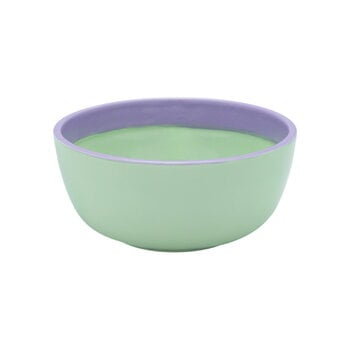Iittala's Play bowl delights at the breakfast table as a morning porridge or yoghurt bowl and is suitable for serving desserts and other treats at dinner parties. The bowl also charms outside the kitchen as a storage space for tiny treasures of the home.
The bowl is part of the Play range designed by Aleksi Kuokka for Iittala, updating the beloved Finnish glass brand for a new era. Glowing in sun-inspired colours, the collection is inspired by Alvar Aalto's famous quote: "Don't forget to play!" And playfulness, indeed, is what these ceramics, textiles and glassware will bring home! As usual for Iittala, the cups, mugs and decorative objects in the Play series are easy to combine not only with each other but also with other tableware in the home.





